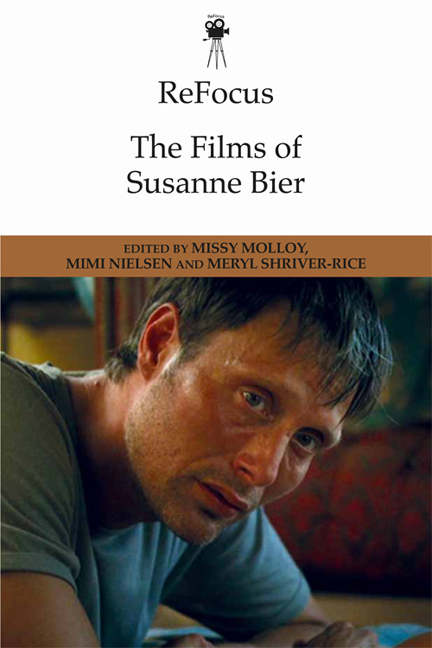Book contents
- Frontmatter
- Contents
- List of Figures
- Notes on Contributors
- Foreword
- Introduction: Susanne Bier's Boundary-Crossing Screen Authorship
- Part 1 Generic and Industrial Fluidity
- Part 2 Negotiating Identity
- Part 3 Authorship and Aesthetics
- Part 4 Transnational Reach
- Postscript: A Conversation with Susanne Bier
- Filmography of Susanne Bier
- Acknowledgments
- Index
7 - Gender Equity in Screen Culture: On Susanne Bier, the Celluloid Ceiling, and the Growing Appeal of TV Production
Published online by Cambridge University Press: 01 May 2021
- Frontmatter
- Contents
- List of Figures
- Notes on Contributors
- Foreword
- Introduction: Susanne Bier's Boundary-Crossing Screen Authorship
- Part 1 Generic and Industrial Fluidity
- Part 2 Negotiating Identity
- Part 3 Authorship and Aesthetics
- Part 4 Transnational Reach
- Postscript: A Conversation with Susanne Bier
- Filmography of Susanne Bier
- Acknowledgments
- Index
Summary
Susanne Bier, undoubtedly, is a major figure in the landscape of contemporary cinema. Global visibility of the kind enjoyed by this director generally invites questions about the reasons for success. But, let us be frank: success is all the more intriguing in this particular instance. After all, Bier is a woman. And she is a citizen of a small nation. In Bier's success, there appears to be tantalizing evidence of a woman's ability to deal effectively with the challenges of both gender and small nationhood, and this in the context of a global film industry that is, to put it bluntly, dominated by men, and, by virtue of the sheer clout of large-scale capital investments, big nations. Bier's is a story that does indeed tell us something about the fissures in the celluloid ceiling. However, it also highlights its continued existence.
When seeking to pinpoint the factors shaping Bier's contributions, their global recognition, and her emergence as a star director, various lines of inquiry are relevant. These include broadly institutional types of analysis, where it is a matter, for example, of grasping the role played by the National Film School of Denmark in developing Danish talent, or the place of art and commerce in the business models and strategic positioning of Zentropa, the production company behind Bier's best-known films. Creative processes, including team-based cinematic authorship, as evidenced in Bier's long-term collaboration with scriptwriter Anders Thomas Jensen, also warrant consideration. Questions of genre, style, and narrative focus are anything but trivial, for Bier's character-based, issues-oriented filmmaking springs from a commitment to ensuring that the moving images on our screens bring something of value to our lives. In her engaging and entertaining stories, there is often an invitation to reflect on the nature of citizenship and a good society, on duties and responsibilities that extend well beyond national borders, and on the connections between apparently personal actions and a larger global order. The underlying “philosophy” of filmmaking, it seems, is one with considerable appeal. Finally, there is the issue of how Bier, as a citizen of Denmark and native speaker of one of the world's minor tongues, has negotiated the challenges of moving beyond national borders and onto the terrain of Englishlanguage filmmaking with international stars.
- Type
- Chapter
- Information
- ReFocus: The Films of Susanne Bier , pp. 134 - 148Publisher: Edinburgh University PressPrint publication year: 2018



